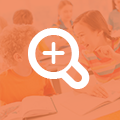Early Childhood Education: Top Trends in 2023

Early childhood education (ECE) plays a critical role in a child’s development and has a significant impact on their future academic and personal success. With the ever-changing world, it’s essential to stay up-to-date with the latest trends in ECE. In 2023, ECE will continue to play a vital role in the lives of young children and their families. ECE provides a foundation for children’s development and prepares them for success in school and in life.
Early Childhood Education Is Important Because…
The first five years of a child’s life are critical for brain development. Early Childhood Education programmes provide children the experiences they need to build a strong foundation for learning. ECE programs provide children the opportunities for social and emotional development, literacy and language skills and cognitive and physical development.
ECE preschools and programmes help children prepare for school. Children are equipped with the skills and knowledge they require to succeed in the future. As mentioned above, ECE programmes help children develop important social and emotional skills, including empathy and self-regulation, which are essential for success in school. Additionally, ECE programmes lay the foundation for literacy and numeracy, so that they are ready for school.
Preschools with a solid ECE programme allow parents to be involved in their child’s education and development. Parental involvement is essential for building strong family-school partnerships that will, in turn, ensure that children receive the support they need for earning and development.
Top Trends in Early Childhood Education
Focus on Social-Emotional Learning
Initially mapped in the 1960s, Social-emotional learning (SEL) has been gaining popularity in the last few years. A 2016 study in rural China revealed that the SEL programme reduces dropout rate by 1.6% and decreased learning anxiety by 2.3% in 8 months. Imagine what we can achieve by introducing SEL in all preschools! SEL focuses on the development of social and emotional skills. These include empathy, self-awareness, self-regulation, and decision-making. These vital skills enable children to build positive relationships and manage their emotions, which are important for success in life and education.
Research has also revealed the deep impact SEL programmes may have on behaviour os children. For example, several studies showed decrease in aggression and bullying. Studies also revealed that preschoolers with a strong grasp of theri social and emotional skills were more likely to succeed in life. Preschools focussed on SEL create a positive and supportive classroom environment, teach children how to manage emotions, and encourage positive behaviour. SEL doesn’t only lean towards academic success but it also helps children become well-rounded individuals.
Play-Based Learning
Play-based learning or learning through play has always been a very basic component of early childhood education. In the past several years, its importance has become more pronounced. In 2023, it will continue to be relevant. It emphasizes the importance of children’s natural curiosity to explore the world around them. Play-based learning equips children to develop vital skills such as problem-solving. Moreover, it allows children to learn and explore in a safe and fun environment.
2023 ECE programmes will focus on integrating play-based education into their curriculum. This includes activities to help promote pretend play, sensory play, and healthy physical activity. Learning through play is not only fun, it also promotes cognitive and physical development.
Blended Learning
The term Blended Learning had been around for several years, but since the COVID-19 pandemic, it has become even more important, even in ECE settings. Blended learning allows educators to combine traditional modes of classroom instruction with digital tools.
Blended learning provides a flexible and personalized learning experience to children. It allows students to learn at their own pace with a wide range of resources and materials. Blended learning can take many forms, including interactive lessons, games and videos. Educators are able to develop an individualized approach that meets the unique needs of each child. It also provides a comprehensive way to track students’ progress and provide feedback and support.
Inclusion
Inclusion has become a vital concept over the last several years. Recently, it has been a top early childhood education trend, and will continue to do so in 2023. Preschools will focus on creating diverse and inclusive classroom environments that celebrate differences. Additionally, they will also provide children with equal opportunities to learn and grow. ECE programmes will emphasize cultural competency training for teachers to ensure they can provide culturally responsive teaching.
As the world truly adapts to becoming a global village – a melting pot of cultures – inclusive and diverse classroom environments promote respect and understanding to flourish. They also provide children with the opportunity to learn about different experiences and cultures, which helps them become more well-rounded individuals.
Outdoor Learning
Outdoor learning allows children to explore and learn in the natural world, in real-life settings. It promotes physical activity, which is essential for children’s health and well-being. Learning in the natural environment has numerous benefits for children’s development, including improved mental health, and enhanced creativity. In 2023, preschools and ECE programmes will focus on outdoor learning as an essential component of their curriculum. Activities like nature walks, gardening and outdoor play may be included in this programme.
.
STEAM Education
STEAM (Science, Technology, Engineering, Arts, and Math) is the rightful successor of STEM. It is yet another top trend in early childhood education that has gained momentum in recent years. Integrating STEAM into early childhood education allows students to develop creativity, critical thinking, and problem-solving skills essential for success in the 21st century.
ECE programs will focus on incorporating STEAM into their curriculum through activities that promote collaboration, inquiry-based learning, and experimentation. This approach also enables children to develop digital literacy skills, which are important for success in the modern world.
Family Engagement
Family engagement builds strong partnerships between students’ families and preschools to support children’s learning. The inclusion of families within ECE frameworks has numerous benefits for children. These include improved academic performance, improved social-emotional development, and increased motivation to learn. Families can be engaged in meaningful ways. Preschools often provide opportunities for families to participate in their child’s learning and encourage regular communication between teachers and families. There may also be family events.
.
Personalized Learning
Most educational practices followed a “one-size-fits-all” approach. In recent years, this approach has been criticized. Many educational systems are now moving towards personalized learning. This is an approach that tailors curriculum to the individual needs and interests of each student. In 2023, ECE programmes will focus on personalized education to provide children with a more individualized and effective learning experience.
ECE programmes will employ a host of strategies to customize and tailor learning. these strategies may include, individualized learning plans and differentiated instruction. Personalized learning allows children to work at their own pace and in their own learning style, leading to improved academic outcomes.
In Conclusion…
Early Childhood Education is a continuously evolving field, with emerging trends. Child-centred education, with a strong emphasis on social-emotional learning has become increasingly important. Technology is also playing a significant role in ECE, with teachers employing digital tools to create a richer learning experience. Additionally, the importance of of cultural responsiveness and diversity is being recognized in early childhood education. The the field of ECE continues to evolve and educators must remain current with the latest research and global best practices so they can continue to provide meaningful and quality education to young children.




Leave a Reply